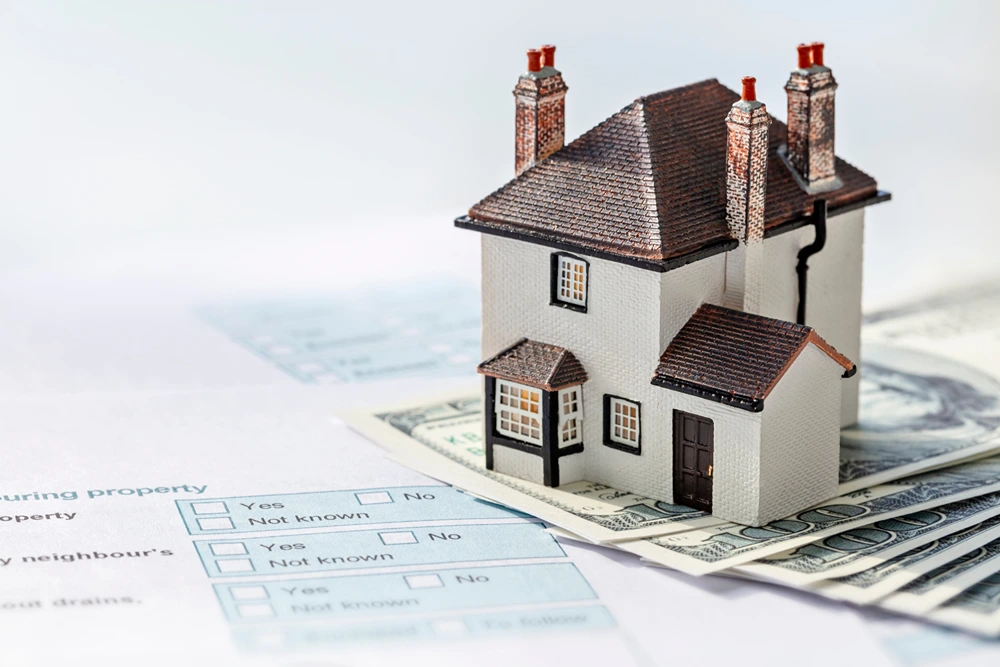“Are leasehold properties the Achilles’ heel of the housing market?” You’ve found your dream home, but there’s a catch—it’s a leasehold property. Unlike freehold properties, leasehold homes come with a unique set of hurdles that can make them notably harder to sell. From restrictive lease clauses to wary mortgage lenders, selling a leasehold can feel like navigating a labyrinth. In this article, we’ll dissect the key challenges that turn buyers away and explore how you can effectively tackle these issues to smooth your selling process. Ready to unlock the mysteries of leasehold sales? Let’s dive in.
Challenges in Selling Leasehold Properties
Selling leasehold properties involves additional documentation compared to freehold properties. Sellers must obtain a Leasehold Information Pack, which includes essential details about the lease, ground rent, and service charges. This not only increases the administrative burden but also incurs extra costs, making the process more cumbersome for both sellers and buyers.
Key challenges in selling leasehold properties include:
- Short lease lengths
- High ground rent
- Restrictive clauses in the lease
- Absentee freeholders
- Poor property condition
Mortgage lenders are often reluctant to finance properties with less than 80 years left on the lease. This is because the property’s value diminishes as the lease term shortens, making it a risky investment. Consequently, sellers may find it hard to attract buyers who require a mortgage, limiting the pool of potential buyers.
Additionally, selling or buying a leasehold property can take up to three weeks longer than a freehold property. The extended timescale is primarily due to the additional legal paperwork required, which can delay the transaction and add to the overall complexity of the selling process.
Legal Aspects of Selling Leasehold Properties
One crucial requirement when selling a leasehold property is obtaining a Leasehold Information Pack from the freeholder. This pack includes key details about the lease, such as ground rent, service charges, and any planned major works, providing potential buyers with the necessary information to make an informed decision. Without this pack, the sale process can be significantly delayed, and prospective buyers may lose interest.
Solicitor fees for selling a leasehold flat typically range from £910 to £1,250, which is higher compared to selling a freehold property. Additionally, conveyancing fees for leasehold properties are often around £300 more due to the complexities involved in leasehold agreements. These increased costs stem from the need to review the lease terms carefully and ensure compliance with all legal requirements, making the process more intricate and time-consuming.
If the lease has less than 85 years remaining, extending it before selling can be beneficial. This is because properties with shorter leases are less attractive to buyers and mortgage lenders, potentially reducing the market value. By securing a statutory lease extension, the seller can enhance the property’s appeal, making it easier to sell and possibly fetching a higher price.
Market Trends and Buyer Concerns for Leasehold Properties

Leasehold properties have become increasingly difficult to sell, largely due to concerns and uncertainties surrounding lease terms and potential legislative changes. Recent market trends indicate a growing hesitancy among buyers, influenced by high-profile cases of unfair lease terms and the complex nature of leasehold ownership. Legislative discussions, such as those surrounding the Leasehold Reform Act, aim to address these issues but also contribute to the uncertainty, leaving buyers cautious about entering into leasehold agreements. This reluctance is reflected in the slower market movement for leasehold properties, impacting their overall desirability and market value.
Common buyer concerns regarding leasehold properties include:
- Short lease lengths, particularly those under 70-80 years
- High and escalating ground rent
- Restrictive clauses in the lease
- Potential for expensive maintenance or refurbishment obligations
Short leases significantly reduce the market value of a property. Banks are often reluctant to lend against properties with leases under 70-80 years, categorising them as “short leases.” This financing difficulty limits the pool of potential buyers, as many require a mortgage to purchase a property. Consequently, sellers of leasehold properties may struggle to achieve a competitive price, further complicating the sales process.
Another major concern is the presence of clauses that can make the property increasingly expensive to maintain. Unscrupulous freeholders have been known to include terms such as doubling ground rent every few years. This not only adds a financial burden on the leaseholder but also makes the property less attractive to prospective buyers, who foresee escalating costs over time. These issues collectively contribute to the growing hesitancy among buyers and the challenges in selling leasehold properties.
Improving the Saleability of Leasehold Properties
To improve the saleability of a leasehold property, it’s crucial to manage paperwork efficiently and maintain good relations with the freeholder or managing agent. Applying for a freeholder information pack as soon as possible can significantly speed up the sale process. This pack contains essential details about the lease, ground rent, and service charges, which are vital for potential buyers. Promptly returning paperwork and providing all necessary lease information upfront can prevent delays and keep buyer interest high. Good relations with the freeholder can also facilitate smoother communication and quicker resolution of any issues that might arise during the sale process.
Practical tips to improve the saleability of leasehold properties:
- Apply for the freeholder information pack early
- Return all paperwork promptly
- Provide buyers with comprehensive lease information upfront
- Maintain good communication with the freeholder
- Ensure the property is in good condition
The property’s condition plays a critical role in its saleability. Properties in disrepair are generally harder to sell as they deter prospective buyers and can reduce the property’s market value. Regular maintenance and addressing any repairs before putting the property on the market can make it more attractive to buyers. This proactive approach not only enhances the property’s appeal but also helps in achieving a quicker and smoother sale.
Comparing Leasehold and Freehold Property Sales
Selling a leasehold property is not significantly harder than selling a freehold property if managed properly. Both property types require careful planning, timely paperwork, and effective communication with all parties involved. However, there are key differences that can impact the sales process. Leasehold properties, which are predominantly flats, involve additional legal complexities due to the lease agreement. In contrast, freehold properties, typically houses, do not have such lease constraints, making the transaction relatively straightforward. The added layer of lease terms, ground rent, and service charges in leasehold sales can make the process more cumbersome and time-consuming.
| Property Type | Key Selling Points |
|---|---|
| Leasehold | Additional legal requirements, potential for short leases, ground rent, service charges |
| Freehold | No lease constraints, simpler legal process, no ground rent or service charges |
Market conditions play a significant role in the sale of leasehold properties. Concerns and uncertainties surrounding lease terms and potential legislative changes have made leasehold properties more difficult to sell. Buyers are increasingly wary of entering into lease agreements plagued by restrictive clauses and escalating ground rents. This hesitancy has led to a decline in the demand for leasehold properties, impacting their market value and making them less attractive compared to freehold properties.
Leaseholder rights are another critical factor in the selling process. Unlike freehold property owners, leaseholders are subject to the terms set by the freeholder, which can include significant restrictions and financial obligations. These limitations can deter potential buyers, especially if the lease is short or the ground rent is high. Understanding and navigating these leaseholder rights is crucial for sellers to ensure a smoother and more successful transaction.
Impact of Leasehold Reforms on Property Sales

The Leasehold Reform Act, currently being discussed in Parliament, aims to address significant issues within the leasehold system, including unfair practices by freeholders. This legislative move seeks to enhance consumer protection and rectify complications inherent in leasehold tenure, thereby potentially making leasehold properties more attractive to buyers.
Current reforms have already made notable strides, such as the abolition of ground rent for new leases. This change alleviates one of the major financial burdens on leaseholders, making new leasehold properties a more appealing option. Additionally, these reforms are designed to simplify the leasehold system, reducing the administrative and financial complexities that often deter potential buyers. By eliminating ground rent, the government aims to level the playing field between leasehold and freehold properties, thereby encouraging a more balanced property market.
Potential future reforms, such as the consideration to abolish marriage value, could further impact property sales positively. Marriage value is an extra cost incurred when extending a lease that has less than 80 years remaining. Abolishing this could significantly reduce the cost of lease extensions, making them more affordable for leaseholders. This change would likely increase the market value of leasehold properties, as extended leases are more attractive to both buyers and mortgage lenders. Consequently, these reforms could facilitate a smoother and more lucrative selling process for leasehold property owners.
Final Words
Navigating the sale of leasehold properties presents unique challenges, from complex documentation to short lease lengths and high ground rents.
These issues, coupled with buyer concerns and stricter lending criteria from mortgage lenders, underline why leasehold properties are harder to sell.
Addressing legal requirements, understanding market trends, and implementing practical selling tips can improve the sale process.
Ultimately, with awareness and preparation, selling a leasehold property can be a smoother experience.
Stay informed and proactive to succeed in this niche market.

Oliver is a cloud solutions architect specializing in scalable hosting services and infrastructure optimization. He writes about best practices for efficient and secure cloud deployments.




